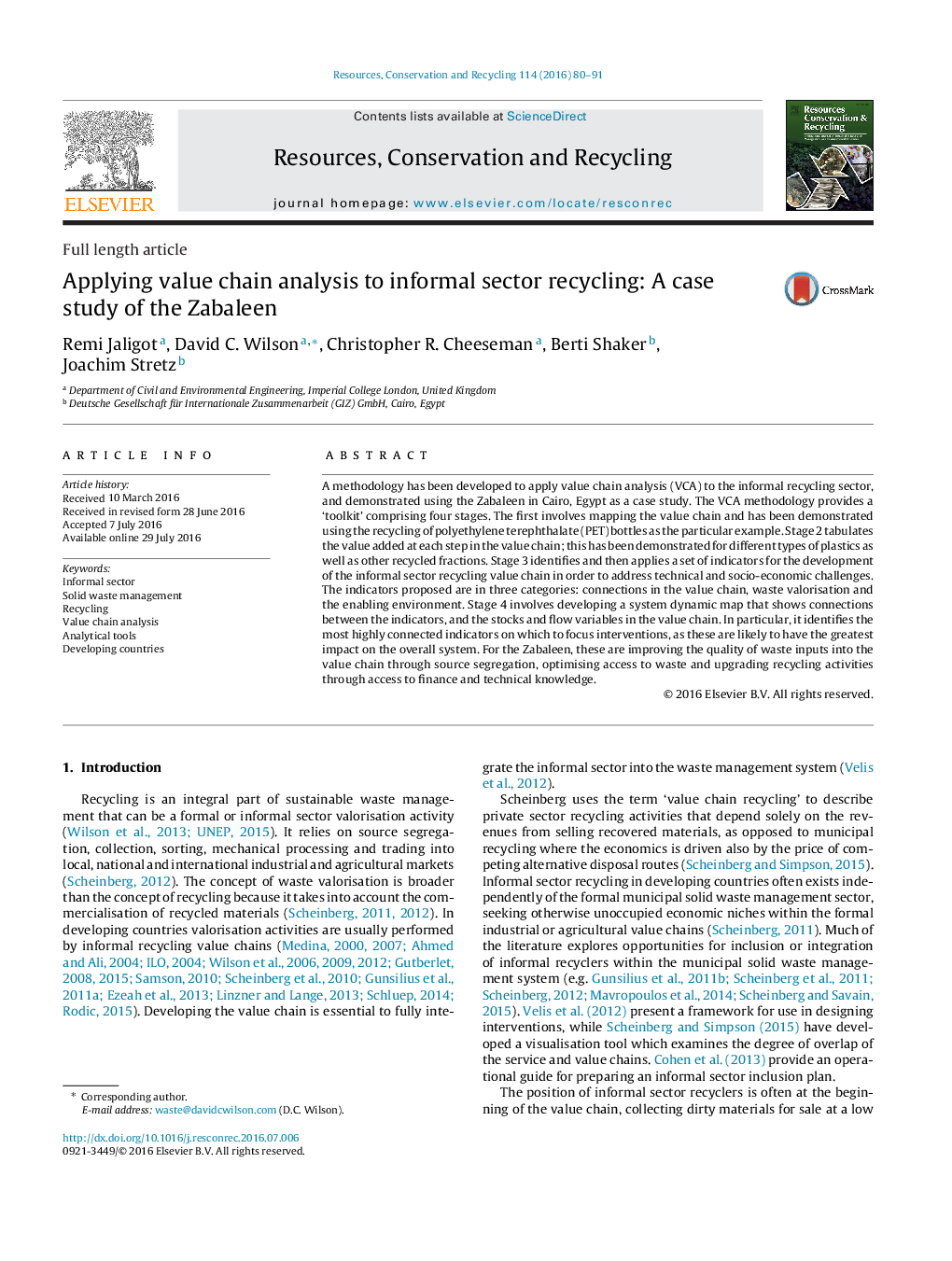| Article ID | Journal | Published Year | Pages | File Type |
|---|---|---|---|---|
| 1062664 | Resources, Conservation and Recycling | 2016 | 12 Pages |
•A new methodology applies value chain analysis (VCA) to informal sector recycling.•The toolkit is demonstrated using the Zabaleen in Cairo, Egypt as a case study.•The toolkit maps the value chain and then tabulates the value added at each step.•Connections between a set of indicators is analysed using a System Dynamic Map.•Development priorities: source segregation, access to finance, technical knowledge.
A methodology has been developed to apply value chain analysis (VCA) to the informal recycling sector, and demonstrated using the Zabaleen in Cairo, Egypt as a case study. The VCA methodology provides a ‘toolkit’ comprising four stages. The first involves mapping the value chain and has been demonstrated using the recycling of polyethylene terephthalate (PET) bottles as the particular example. Stage 2 tabulates the value added at each step in the value chain; this has been demonstrated for different types of plastics as well as other recycled fractions. Stage 3 identifies and then applies a set of indicators for the development of the informal sector recycling value chain in order to address technical and socio-economic challenges. The indicators proposed are in three categories: connections in the value chain, waste valorisation and the enabling environment. Stage 4 involves developing a system dynamic map that shows connections between the indicators, and the stocks and flow variables in the value chain. In particular, it identifies the most highly connected indicators on which to focus interventions, as these are likely to have the greatest impact on the overall system. For the Zabaleen, these are improving the quality of waste inputs into the value chain through source segregation, optimising access to waste and upgrading recycling activities through access to finance and technical knowledge.
Graphical abstractFigure optionsDownload full-size imageDownload as PowerPoint slide
